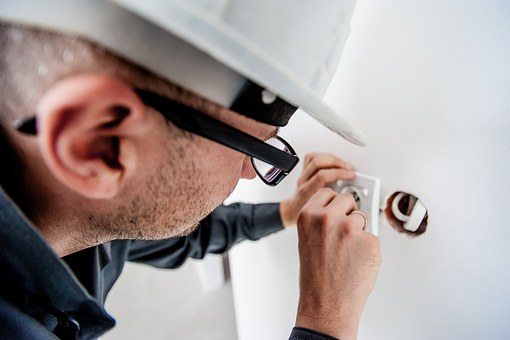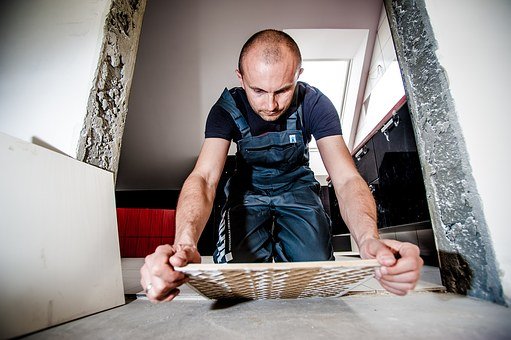11 Essential Tips to Finding Great Tradespeople
One of the biggest worries you can face as a property investor of any experience level is…
Who do you hire to work on your property?
Finding great tradespeople will ensure that any work done to your property is of the highest quality, and maximises the value added to your property.
As well as the added value of quality work, hiring reputable traders will get you fast turnaround times on your investments with minimal hassle, delays and unforeseen extra costs.
There are some truly fantastic tradespeople out there, however we’ve all heard more than a few horror stories as well.
From the undetailed plans get rejected for planning permission to the gas and water pipes accidentally ripped out to flood the house or the extension built on the wrong side of the property, the one factor they all have in common is that they are going to cost you time and money!
Before we get started with my 11 tips to finding a great tradesperson, here are 3 questions you should asking yourself when looking for and hiring traders:
1. Is their work of a high quality?
This one seems obvious, but you should never sacrifice quality work for a cheaper price. You will only have to get the work done again properly, and a job done right the first time is always cheaper than a job done twice!
Our mantra at Premier Property is the more money your spend in a property, the more money you will make from it, as long as there is a return on your investment.
2. Do they turn up on time?
Poor timekeeping can delay other work scheduled to take place, and keep your property off the market.
3. How do they handle mistakes?
Bear in mind here that mistakes do happen, what you should focus on here is whether a mistake will be fixed promptly or become a headache for you.
Let’s dive right in to my 11 essential tips for finding great tradespeople, and avoiding the not so great!
If you’re new to property investment, then have a read of my 9 Top Tips For Property Investing Beginners.
11-Point Checklist for finding Credible Tradespeople
1. Ask for recommendations.
It may sound obvious, but you would be surprised how many people don’t do this! From friends and family to colleagues and fellow investors, a recommendation from someone you trust can save you a lot of time.
If you already have a builder you can trust, might they know a plumber or electrician you can trust?
Always be on the lookout for new contacts.
2. Keep your contacts.
Once again, you would be surprised how many people look for a new contractor every time they need work done. If someone has done a great job for you in the past, build a relationship with them.
They may be willing to offer a lower price or work further afield if they are sure of getting future jobs from you.
Save their details in your phone, and keep a spreadsheet with the details of all the work you have done and the details of the company who did it.
Next time you need to hire someone, you will be able to tell at a glance if you already know someone in the area and whether you were happy with their work.
Looking for more tips on organising the information you have on your property investments? Watch this video where I share exactly how we organise our paperwork and admin at Premier Property.
3. Be wary of cold-callers.
It may sound harsh, but the simple fact is this is not how reputable tradespeople usually get work.
Quality tradespeople are usually booked weeks in advance and have no need to cold-call.
Ask yourself:
Why does this person have so little work that they have time to cold-call?
It might be simply that they are just starting up and don’t have the customers coming to them yet, but it could be that they are unqualified, unlicensed or have a history of poor work.
Since you know a cold-caller is not busy you may be able to get work done faster or cheaper but you should be extra vigilant when researching their business.
4. Read the reviews.
Sites like Checkatrade.com, Trustatrader.com and MyBuilder.com are great resources for finding someone credible quickly. Read as many reviews as possible and look for trends, good or bad.
Social media is another great place to find reviews, with the added bonus that you might be able to contact reviewers directly and verify their review.
You can join our Premier Property Community private Facebook group for free, and it is a great place to find out who our property investors and developers love to work with and who they avoid, as well as ask any other questions you need answered about property investment.
Some businesses are not above giving themselves glowing reviews via fake accounts!
5. Check trader registers.
There are so many places traders advertise online now, all of which have their own systems for approving and rating traders, which can make them confusing to compare.
Worse, for many sites like this tradespeople are their primary customers, and so they have an incentive to give traders the benefit of the doubt when it comes to disputes over payment, poor quality work or moderating negative reviews.
TrustMark is a government-approved register listing trusted traders across the UK. There may also be a register local to your area.
While you should do all your research regardless, government-approved trusted trader marks like TrustMark are there to tell you at a glance if a company is credible.
6. Get a feel for their past work.
Most companies will have past jobs and testimonials on their website, and it could be a bad sign if they don’t!
You could even visit their previous jobs in person for that extra bit of assurance, or call their previous customers and listen to their experiences.
7. Find out how long a company has been trading.
If a company has only existed for a very short time, probably they are just new and there is nothing to worry about.
In fact, you might be able to angle for a discount as an early customer.
Even if the company seems trustworthy, it is very important to find out what you can about any work they have already done.
Use Companies House to see how long someone has been trading, and if any other businesses have been registered by the same people.
Find out everything you can about them.
It might not be likely, but you might just find a string of unhappy customers they are using a new name to hide from.
On a more positive note, if they are a well-established business this is a good sign that they are trustworthy.

8. Get quotes.
Aside from giving you an idea of their prices, having a conversation with someone is a great way to get a feel for their work ethic, standards and general attitude.
As for the quote itself:
- Give a clear, detailed and specific brief to get an accurate a quote as possible.
- Ask for time estimates as well as price.
- Specify the materials you want to be used.
Here are 5 key questions you need to get answers to:
- Is cleaning up and waste disposal included?
- What is the breakdown of labour and material costs?
- Who will supply materials and who will pay for them?
- Are subcontractors included?
- Are additional costs like parking included?
Always get at least 3 quotes!
9. Agree a timetable and payment schedule in advance.
You want to have this in writing so there can be no disputing it later on.
A 5-10% deposit may be requested when the tradesperson will need to buy extra supplies and materials, but otherwise only pay for completed work.
If you have done your research it isn’t a problem likely to come up, but if you are not happy with the quality of the finished job, for example, you would want it fixed without further payment.
It is a lot easier to make that happen when you haven’t already handed your money over!
10. Tell people you are a property investor.
Most tradespeople can see the potential for repeat work with a property investor, and may offer better prices or faster schedules to build a relationship with you.
11. Be prepared to provide on-site management.
Especially in the early stages of a project, you or someone you trust needs to be advising on the work being done.
If you hire contractors for a major project and leave them to it with no supervision, don’t be too surprised when the result is not what you wanted!
Even the most experienced tradespeople will need to query the odd detail with you.

And finally...
Get EVERYTHING written down. From initial quotes to receipts and invoices, and every minor additional cost, no detail is too small to leave out.
If you always think about the previous 11 points you should have nothing to worry about, but there is no good reason for not protecting yourself with written records!
You WILL regret not having these if something does go wrong.
